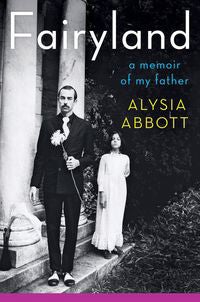On the surface, Fairyland: a Memoir of My Father tells a unique story; when her mother is killed in a car accident, three-year-old Alysia Abbott goes to live in San Francisco with her father, who’s recently come out as gay.
Arriving in 1973, father and daughter spend the next 15 years living mainly in the post-hippie Haight-Ashbury area, still a mecca for those with liberal views and America’s oppressed gay population.
For the first time in his life, Abbott’s father feels a sense of belonging, which inspires a growing acceptance of his sexuality and his first flush of success as a poet. But a series of failed relationships leads to drug addiction and loneliness and, after years of illness, his life is cut short by Aids.
The book is very much Abbott’s perspective on life with her father. Like many children, she begins to feel that she doesn’t fit in and develops a belief that there must be something wrong with her.
As a teenager she searches for her own sense of belonging in the alternative music scene of the early Eighties. As she does so, her story takes on a more universal resonance and seems less and less unique.
Perhaps the memoir is most powerful when exploring Abbott’s conflicting feelings regarding her father’s sexuality. Looking back after his death, she’s nostalgic about the special “fairyland” the two of them shared and appreciates the sacrifices he made during a time when there was no template for single gay parenting.
But equally she admits to feeling disappointed by his occasional neglect and inappropriate choices of babysitters and boyfriends. As a gay reader, it’s difficult not to feel moved by her admission that for years she felt ashamed of her dad’s sexuality and longed for a maternal influence and a “normal” family.
Because of the setting, comparisons with Armistead Maupin’s Tales of the City are inevitable, although Fairyland is curiously devoid of humour and may have benefited from the occasional beam of light to illuminate the shade. Abbott is, however, exceptionally adept at re-creating the colour of her childhood.
In the preface to this new British edition, Abbott references many of the people who’ve read the American edition and told her that they felt moved because their stories “are different but the same”. Of course, you could argue that this has to be true for any work of literature to succeed. But, judged against these criteria, this one certainly does.
Matt Cain is the former culture editor of ‘Channel 4 News’. His debut novel is ‘Shot Through the Heart’ (Pan Macmillan)
Order for £14.99 (free p&p) from the Independent Bookshop: 08430 600 030

Join our commenting forum
Join thought-provoking conversations, follow other Independent readers and see their replies
Comments